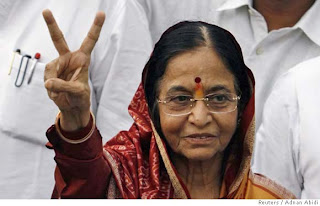
The Woman: Lakshmi Iyer, Associate Professor of Business Administration, Harvard Business School
The Talk: The Power of Political Voice: Women's Political Representation and Crime in India
The Question: Does female leadership affect crime rates in India?
It's not every day that rising crime rates are seen as a good thing. But according to Lakshmi Iyer at Harvard Business School, this statistic may reveal how women in India are gaining better access to the country's justice system.
According to recent research conducted by her and her team, reports of crimes against women have risen as more female politicians have been elected at the local, district and village council levels over the past 2 decades. Rather than an increase in crimes against women, Iyer argues that the rising rate is due to greater reporting of crimes--which is good news for women's access to the justice system in a system ridden by caste, social hierarchy, and persistent gender disparity.
Greater female political representation has meant:
- Better Response from Law Enforcement: a female politician may have more inclination to pursue legislation for women against crimes and violence, and also construct policy based on the needs of her constituents.
- Better Public Perception: interaction with female leaders in India has shown that areas with female leadership have positive views of female leadership
- The Role Model Effect: women may be less tolerant of abuse once they see others in power, and are motivated to take a stand against injustice.
As more females were elected at lower levels of government beginning in 1993, crimes against women increased on the books by 44% - an astounding figure that flabbergasted the team. "We first thought we were wrong, because the number was so big," says Iyer. "We ran the regression again because we were expecting crime rates to decline."The statistic also allowed researchers to glean how attitudes towards women may be changing on the ground.
The police, a traditionally male-dominated institution, may be treating women's crimes more seriously now that women are accompanied by a village counsellor to help them support their claim. This is key in a country where Iyer says attitudes towards crimes against women are still casual. "One policeman told me: 'The husband has a right to beat the wife. in fact, I beat my wife too'."
But some think that education, rather than political representation, will ultimately change attitudes towards women in India. A former chief of police was on hand at the seminar to address the problem of gender disparity. "Many times, if the woman elected to office is illiterate, her husband is ruling by proxy. I believe it is education that will really make the difference for women's progress in India."
*Caption: Pratibha Patil, India's president, makes a peace sign after being elected the first female president of India in 2007. Courtesy Reuters
Effie-Michelle Metallidis is a guest student blogger for the Women and Public Policy Program and Master in Public Policy first-year student at Harvard Kennedy School.

No comments:
Post a Comment